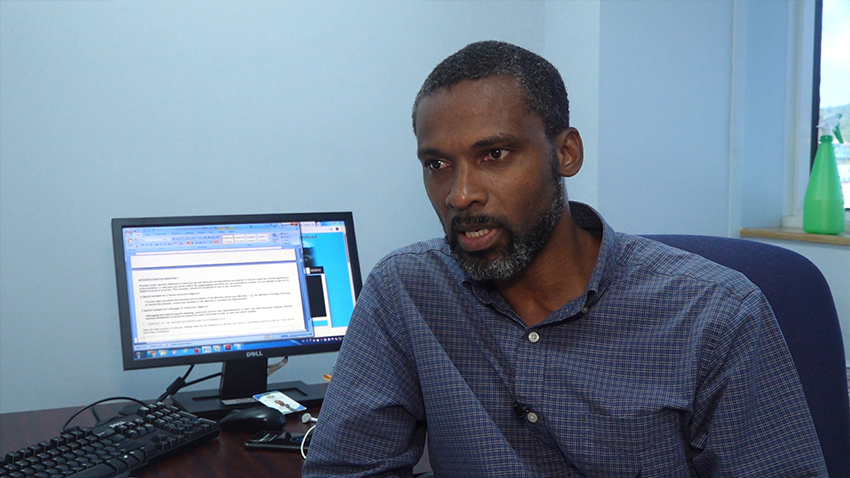Issues related to Public Procurement, worldwide, have always been contentious, for the simple reason that public funds are being expended in the acquisition of goods, services and works by the government in the course of providing public services. Central to an effective public procurement regime are transparency, accountability, equity, and trust in the procurement process. Saint Lucia’s new procurement legislation and Electronic Government Procurement system (eGP) is being viewed as a model in the region in terms of making transparency, accountability, and fairness achievable.

The Procurement Administration Unit in the Department of Finance is finalizing regulations to the new procurement legislation enacted in June of 2021. Ag. Director of Procurement Administration, Anthony Jean, said the impact of procurement on the estimates of national expenditure is significant as government is the biggest procurer of goods, services and works on island.
“Anywhere in the region of 15 to 20 and in some years 25 percent of your estimates and you can imagine that in the last five years our estimates have been in the region of 1.2 to 1.5 billion. That is a lot of our expenditure going in that direction,” Jean said.
He indicated that there is increased scrutiny by the general public with regards to the use of public funds and thus public officers must adhere to a logical process that ensures transparency, accountability, and fairness in the procurement process.
“So, it really puts public officers, public officials, under a broader microscope in terms of accounting. So the procurement processes in place are all part of the Department of Finance’s whole efforts towards improvement in our fiscal accountability framework. You would have seen similar upgrades being done in terms of Public Financial Management laws. So, all of this is in response to increasing demands on public officers to be more accountable and transparent in their actions,” Jean said.
Saint Lucia’s procurement legislation was designed in congruence with international best practices and according to Jean, the procurement process should encourage broader participation and capacity building through competition and it must be viewed as an important indicator for monitoring national productivity.
“So it increases productivity. It allows people to be more strategic in their actions. You get more for less resources and efforts expended,” he added.
Jean explained the difference between transparency and visibility in the procurement process stating that, “It’s one thing to say, in our annual estimates we allocated a million dollars to a particular activity and at the end of the cycle we can all see the asset exist, be it a structure or whatever. That is visibility, not transparency. Transparency in terms of public procurement requires that all parties, all stakeholders involved can clearly see the process that was followed in acquiring that asset. So if I was capable of participating in that opportunity, I can at least admit that clearly, based on the requirements that had to go into this, I would not qualify. So, I know where it is I need to work on if I want to get to that stage at some point in my career. So it fosters that sort of reliance, credibility in our processes. So transparency is a little more in-depth than just visibility.”
The Director of Procurement Administration noted that despite the government’s desire to increase the effectiveness and efficiency of public procurement by gaining increased value with the limited resources available this must not be achieved at the expense of suppliers.
“What you want to accomplish is a win-win situation where government as the buyer, the suppliers local, regional and international as our partners in providing public services; You don’t want a situation where government wins and they lose because that is only short term. Vice versa, you don’t want the government to lose at the expense of suppliers, they will in the medium term suffer the consequences of that. So procurement requires, yes we get goods and services at reasonable prices but also your suppliers market develops as well. So you must strike that balance,” Jean said.
Procurement legislation is relatively new to the Caribbean region and thus Saint Lucia’s new Procurement Act and Electronic Government Procurement system (eGP), Jean says, is being monitored by many jurisdictions as a model for public procurement administration.





![Attendees at the UHC logo and website launch [Photo credit: GOSL]](https://thevoiceslu.com/wp-content/uploads/2026/02/Attendees-at-the-UHC-logo-and-website-launch-380x250.jpg)






![Remnants of an alleged drug boat blown up in a lethal strike by the U.S. military last week surfaced off Canouan on Saturday [Photo credit : St Vincent Times]](https://thevoiceslu.com/wp-content/uploads/2026/02/Remnants-of-an-alleged-drug-boat-blown-up-380x250.jpg)
